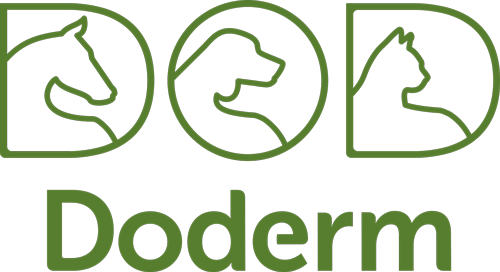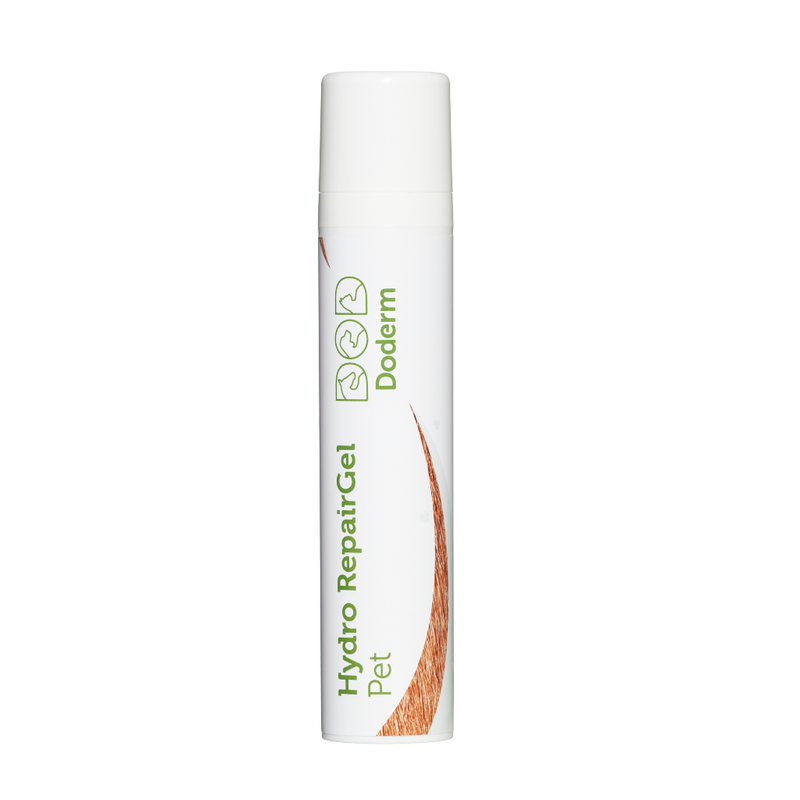Skin problems are common in dogs – but when bald, flaky patches suddenly appear, ringworm might be the cause. This fungal infection isn’t just uncomfortable for your dog; it can also be contagious to other animals and even humans. In this article, you’ll learn how to recognize, treat, and prevent ringworm in dogs.
What is ringworm in dogs?
Ringworm, also known as dermatophytosis, is usually caused by fungi (dermatophytes) like Microsporum canis, Trichophyton mentagrophytes, or Microsporum gypseum. These fungi affect the skin, coat, and sometimes even the nails. Puppies, dogs with weakened immune systems, or dogs from shelters or breeders (where close contact with other animals is common) are especially at risk.
The fungal spores are extremely resilient and can survive in the environment for weeks or even months – making treatment more challenging.
How to recognize ringworm in dogs
Symptoms can vary from dog to dog, but the most common signs include:
-
Circular bald patches
-
Flaky, red, or crusty skin
-
Itching – mild or severe
-
Brittle or changed nails
-
Skin changes on the face, paws, or belly
The infection often starts in one area and spreads without treatment. One tricky thing is that ringworm can easily be confused with other skin conditions like mites, hotspots, or allergies.
Is ringworm contagious?
Yes – and that’s important to know. Ringworm is zoonotic, meaning it can be transmitted to humans. Children, the elderly, and people with weakened immune systems are especially vulnerable. Other pets in the household can also become infected. That’s why it’s important to act quickly and follow proper hygiene practices if you suspect ringworm.

How is ringworm diagnosed in dogs?
Only a veterinarian can confirm if your dog has ringworm. Diagnosis typically involves:
-
Wood’s lamp: Some types of ringworm fluoresce under UV light – though not all do.
-
Microscopic exam: A skin scraping or plucked hair is examined.
-
Fungal culture: A lab test to identify the exact fungus – this can take 1–2 weeks.
A clear diagnosis is essential for targeted treatment and to avoid delays.
How is ringworm in dogs treated?
Ringworm takes time and consistency to treat. Depending on the severity, treatment may include:
-
Topical treatment: Antifungal creams, ointments, or medicated shampoos applied directly to affected areas
-
Systemic treatment: For widespread infections, the vet may prescribe oral antifungal medication
-
Environmental cleaning: Wash bedding, toys, carpets, and soft furnishings regularly. Special disinfectants may be needed to kill fungal spores
-
Support for the skin barrier: A healthy skin barrier helps the skin regenerate and resist future infections
Pro tip: Gentle skincare with natural antibodies, like Doderm Repair Gel, can help support the skin barrier without disrupting the skin’s delicate microbiome. After a fungal infection, this type of soothing, microbiome-friendly care can help the skin recover and stay healthy long-term.
Try Doderm Repair Gel for dogs!
How long does recovery take?
Recovery time depends on the severity of the infection – usually 4 to 8 weeks. It’s important to stick with the full treatment course, even if the symptoms improve early on. Stopping too soon increases the risk of the infection coming back.
Can you prevent ringworm in dogs?
You can’t always prevent it, but you can reduce the risk by:
-
Boosting the immune system with a balanced diet and low-stress lifestyle
-
Regular grooming and skin checks
-
Keeping your dog’s environment clean, especially with multiple pets
-
Using gentle, non-drying skincare products
-
Being cautious around animals with visible skin problems (e.g., in shelters or training groups)
Conclusion
Ringworm is unpleasant, but it’s treatable – especially when caught early. Watch for skin and coat changes in your dog and talk to your vet if you notice anything suspicious. With consistent treatment, patience, and the right skincare support, your furry friend will be back to feeling great in no time.
After an infection, the skin needs time and support to heal. That’s where Doderm Repair Gel can make a difference: it helps calm irritated skin, promotes natural healing, and strengthens the skin’s microbial balance – all without harsh ingredients. Perfect for sensitive dog skin and ideal for daily care after fungal infections.



0 comments